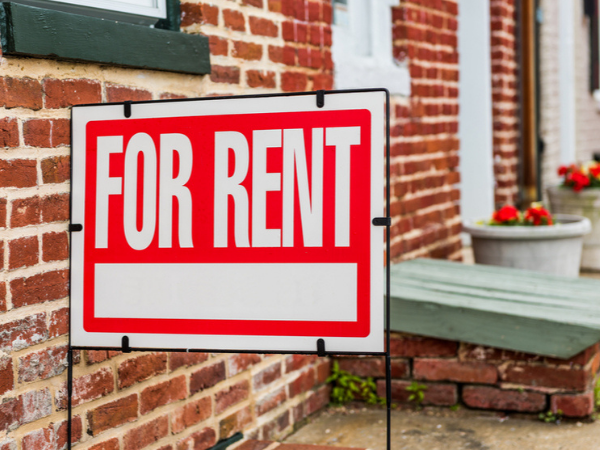How does rent-to-own work?
Rent-to-own homes enable renters to transition into homeowners eventually. Like regular tenants, they must submit monthly rent payments. However, these allow them to accumulate rent credits, reducing the home’s purchase price. They could later buy the property if they have extra money.
We’ll start by discussing the basics of this type of rental agreement. If you’re interested, you should confirm your agreement covers specific terms and conditions. However, you might want to check the benefits and risks beforehand. More importantly, you should check if it’s practical during the pandemic.
If you rent to own a house, you could eventually gain ownership. This type of agreement enables you to buy the home at a lower sales price. Our guide could help you become a homeowner via rent-to-own. You’ll learn the required documents, professional assistance, terms, and conditions.
How do rent-to-own agreements work?

Typically, renting to own a home is an agreement between buyer and seller. State and local laws enforce tenant protections, but both parties ultimately determine the terms and conditions.
After negotiations, the buyer must sign a rent contract to become a tenant. While occupying the property, they pay rent monthly. A portion builds equity, reducing down payment for the home.
Depending on the lease agreement, the renter has the option to purchase the house. The previous monthly payments help them acquire the property at a lower price.
As we’ve mentioned, your rent-to-own experience may vary depending on the agreement. For instance, you may have a legal obligation to buy instead of an option to buy.
GET YOUR FREE UPDATE MORTGAGE RATE HERE
Types of rent-to-own contracts
According to the Tenant Resource Center, you may choose from 5 types of rent-to-own contracts. As we’ve said, its specific details will depend on you and the landlord:
- Offer to purchase – The buyer applies for a mortgage then lives in the home. Meanwhile, they must submit payments until they’ve completely paid off the loan.
- Land contract – Instead of borrowing from a bank, the seller lends to the buyer. The homeowner submits a land contract then requires regular payments from the buyer. What’s more, they should pay for repairs too.
- A land contract with a balloon payment – Similar to a standard land contract, but paying the total amount has a deadline. Though, it’s submitted to a bank instead.
- Option to purchase – The tenant could eventually choose to buy the home. The law only protects them if they were renting beforehand.
- Lease with extra payments – Extra money could serve as a down payment or installments that build a down payment.
Parts of rent-to-own contracts
Your ideal rent-to-own contract should have two parts: the land contract and the rent-to-own trifecta. The Tenant Resource Center also explains the segments of this trio:
-
- Rental agreement – Otherwise known as a lease, it’s an oral or written agreement for transferring property possession. It may mention terms like one-time upfront fees and obligations. Please check your state government’s website for further information.
- Option to purchase agreement – It explains how a buyer could gain the purchase option. It may include conditions like option fees, end of the lease term, and rental period. Ask your local government for their official rent-to-own forms.
- Contract of sale – This document explains the payment method for purchasing the home. It should state the purchase price, the property’s components, and its defects.
Related Articles
How Much Does A Funeral Cost?
What a Child Tax Credit Means
Everything You Need to Know About A Credit Card Limit
Advantages of rent-to-own
People usually choose rent-to-own properties if they want to own homes eventually. Additionally, it grants these advantages as well:
- You could secure a lower purchase price – If you want to buy the property, you’ll agree to a set purchase price. No matter how real estate markets perform, you’ll pay the home value stated in the contract.
- You could move out if something’s wrong – You may perform an inspection while occupying the home. If you find flaws or issues, you could simply leave the property.
- It could help you boost your poor credit score – On-time monthly payments could improve your credit history. Note that your credit rating determines if you qualify for a mortgage. In turn, it could affect your monthly expenses.
Disadvantages of rent-to-own
All types of rent agreements have drawbacks, even ones that let you buy the house. Consider these while you look for rent-to-own homes:
- You may need lots of upfront option money – The agreement requires an upfront option fee costing thousands of dollars. It’s usually worth it for some people since it could lower home prices. Nevertheless, others may struggle to pay this fee.
- You might have to move because of the seller – If they fail to pay their mortgage lenders, the property might be foreclosed. Unfortunately, you may have to move as a result.
- In the end, you might not be able to purchase the home – The rent-to-own agreement doesn’t solve a buyer’s financial problems. If they have poor credit or insufficient income, the option to buy could remain inaccessible.
Is it a good idea during the pandemic?
The COVID-19 crisis continues to impact nearly every aspect of daily life. Countries enforced lockdowns to safeguard citizens. Unfortunately, it harmed their quality of life.
For instance, a vast majority lost their livelihoods. Without a job or a business, many lost their ability to sustain housing. As a result, numerous evictions occurred throughout the crisis.
What’s more, the pandemic’s effects on the housing market are so severe that it might affect future elections. In response, people browsed housing options like rent-to-own.
In response, the government launched the Emergency Rental Assistance Program. You should qualify for its requirements, though. Regardless, check every viable option.
However, be wary of scammers who might trick people into fraudulent schemes. Sadly, unlucky folks find out:
- The so-called seller didn’t have ownership of the property
- The landlord hasn’t paid taxes on the property.
- The home has hidden issues such as lead paint or asbestos walls.
- The owner didn’t perform the fixes stated in the signed contract.
- The rent-to-own home is under foreclosure.
How to explore rent-to-own options properly
If you’re considering this rental option, you should remember specific tips. These will help you find the best deals while avoiding potential scams.
First and foremost, you should carefully read the fine print. Look for the terms we’ve mentioned earlier. Meanwhile, match your current financial situation with the agreement.
What’s more, you should ask a real estate agent for guidance. They are professionals who could help you find the rental options that suit you best.
You should also request legal counsel from a real estate attorney. They could help you understand jargon such as lease-options agreements and lease-purchase agreements.
More importantly, they could help translate the legalese found in rent-to-own contracts. These professionals can ensure the conditions don’t put you at a disadvantage.
If you don’t have money to spare, you could request assistance from nonprofit organizations. Some of them help people find affordable housing.
Final thoughts
Rent-to-own options could be a nifty way to acquire a home. Just make sure you understand the related documents thoroughly.
As we’ve mentioned, these might not help you fix your financial problems. Solving those would require proper money management and good spending habits.
Luckily, you could find numerous personal finance tips on the internet. These could guide you in paying off debts and saving money for emergencies.
Ultimately, proper personal finance may facilitate your homeownership journey. Rent-to-own could provide the way, but money management helps you reach the goal!
Sponsored Advertising Content:
Advertorial or Sponsorship User published Content does not represent the views of the Company or any individual associated with the Company, and we do not control this Content. In no event shall you represent or suggest, directly or indirectly, the Company's endorsement of user published Content.
The company does not vouch for the accuracy or credibility of any user published Content on our Website and does not take any responsibility or assume any liability for any actions you may take as a result of reading user published Content on our Website.
Through your use of the Website and Services, you may be exposed to Content that you may find offensive, objectionable, harmful, inaccurate, or deceptive.
By using our Website, you assume all associated risks.This Website contains hyperlinks to other websites controlled by third parties. These links are provided solely as a convenience to you and do not imply endorsement by the Company of, or any affiliation with, or endorsement by, the owner of the linked website.
Company is not responsible for the contents or use of any linked website, or any consequence of making the link.
This content is provided by New Start Advantage LLC through a licensed media partnership with Inquirer.net. Inquirer.net does not endorse or verify partner content. All information is for educational purposes only and does not constitute financial advice. Offers and terms may change without notice.





